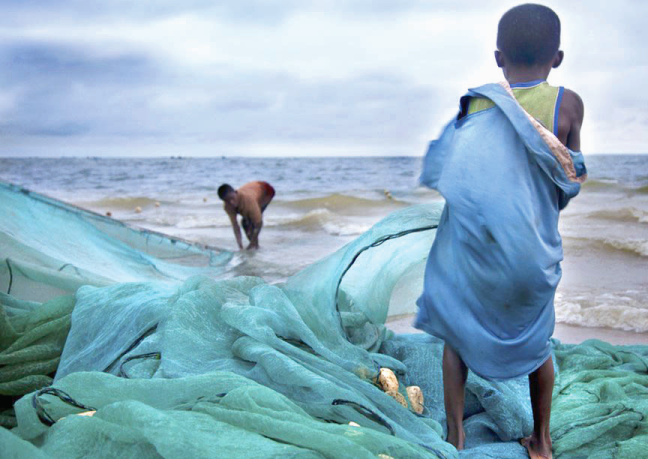On the morning of June 16, 1976, an estimated 10,000 students from various schools took to the street of Soweto to protest against the poor quality of education and demanded their right to be taught in their own language.
Dubbed: ‘The Soweto uprising,’ hundreds of young students were shot while more than a hundred others were killed in the protests which dragged on for two weeks.
In 1991, the Organisation of African Unity (OAU), now African Union (AU), initiated the move for the celebration of the ‘Day of the African Child’ to honour those who participated in the Soweto uprising and also to raise awareness of the continuing need for improvement in the education provided to African children.
On this day, governments, non-governmental organisations (NGOs), international organisations and other stakeholders gather to discuss the challenges and opportunities facing the full realisation of the rights of African children.
The 2016 theme is: “Conflict and crisis in Africa: Protecting all children’s rights.”
Armed conflicts
The theme is aimed at giving a deeper understanding of the impact of armed conflicts on children on the continent and the devastation that accompanies conflicts and crises as children are one of the most vulnerable segments of the civilian population who are negatively affected in various ways.
It also sets out the situational context of conflicts and crises in Africa and the impact on children, highlighting the challenges in ensuring that conflicts and crises are eliminated from Africa.
It also emphasises the importance of creating and maintaining a safe and conducive environment for children to grow, develop and mature properly during the period of childhood.
Ghana’s celebration
Although Ghana has not experienced armed conflict, the country, in solidarity with others, celebrates the day with various events.
The Campaign for Female Education (CAMFED) Ghana, which fights poverty and HIV and AIDS in Africa by educating girls and empowering women to be leaders of change, is one of the organisations which commemorate the day.
CAMFED Ghana’s vision is of a world in which every child is educated, protected, respected and valued, and grows to turn the tide of poverty.
In Ghana, the organisation works in 31 districts across the Northern, Upper East, Upper West and Central regions.
With support from Camfed Ghana, children from these four regions, considered as the poorest in the country, are given the opportunity to have good education so that they will not be lured into conflict situations, should any arise.
CAMFED Ghana collaborates and works with stakeholders in education to achieve its vision.
With support from the Department for International Development (DFID), UK, as of 2014, a total of 31,000 girls had been supported to attend junior and senior high schools.
In addition to other programmes and interventions, DFID has provided funding support for educational activities under the partnership between CAMFED Ghana and the Girls’ Education Unit (GEU) of the Ghana Education Service (GES).
CAMFED Ghana, in partnership with the GEU, works with the objective of expanding educational opportunities for girls through advocacy and the provision of financial and other support to girls who, due to financial and other constraints, may not have access to education.
Impact of conflicts on children
According to the African Committee of Experts on the Rights and Welfare of the Child (ACERWC), wars and conflicts put children in situations where children’s rights are violated, including the right to life, the right to live in a family environment, the right to health, the right to education and the right to survival and development.
The ACERWC, in the run-up to the 2016 celebration of the day, says it is concerned about the negative impact caused by conflicts and crises on Africa.
In 2013, the United Nations Secretary General, Mr Ban Ki-moon, identified the six grave violations of children’s rights in times of armed conflicts, as recruitment and use of children; killing and maiming of children; sexual violence against children; attacks against schools or hospitals; abduction of children and denial of humanitarian access.
These violations, according to the UN Secretary General, are not conclusive but reflect those which must be prioritised in addressing the protection of children’s rights in Africa’s conflict and crisis situations.
In 2005, the United Nations Security Council established a monitoring and reporting mechanism (MRM) on grave violations against children in armed conflict under its resolution 1612.
The African Children’s Charter
The African Children’s Charter protects children during armed conflicts. In the charter, state parties are obliged to respect and ensure respect for rules of international humanitarian law applicable to conflicts which affect children.
It calls on state parties to take all necessary measures to ensure that no child takes a direct part in hostilities and refrain, in particular, from recruiting any child.
The charter also obliges states to, in accordance with their obligations under international humanitarian law, protect the civilian population in armed conflicts‖ and to further take all feasible measures to ensure the protection and care of children who are affected by armed conflicts.
As we celebrate the Day of the African Child on June 16, it is the duty of all to ensure that children remain children and are not forced to work and behave as adults.
Writer's email: rebecca.quaicoe-duho@graphic.com.gh

